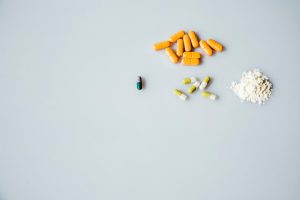A kidney infection is typically a urinary tract infection that can be mild or severe. It can begin in the bladder or the tube that carries urine but can travel to the kidneys and cause complications. Kidney infections, also known as pyelonephritis, can cause long-term issues if ignored. Some conditions will need immediate medical attention to prevent further worsening and limit the treatment expenses and time. An antibiotic course can work the best and might treat it within a week or two. This article highlights the best antibiotic for kidney infection.
Mild kidney diseases might go without any treatment. However, you cannot predict the recovery time. More importantly, you might not know whether your condition is severe or not, even if the UTI symptoms are not too bothersome.
Some infections can cause permanent damage to your kidneys, and the bacteria can spread to the bloodstream. All these conditions are concerning and will require hospitalization and more expensive treatments.
Some people experience kidney scarring and blood poisoning after ignoring kidney diseases for a long time. Kidney scarring is a chronic kidney disease that increases the risk factors for kidney failure. Also, an infected kidney can cause blood poisoning.
You can prevent all these complications by considering immediate medical attention. It is noteworthy that most kidney diseases are treatable with antibiotics.
However, when it is severe, you might need hospitalization for a couple of days, and then you can continue your treatment with oral antibiotics.
Different types of antibiotics are available as kidney disease treatment options. Your doctor will decide the best antibiotic for kidney disease based on the severity.
List of The Best Antibiotic for Kidney Infection
Doctors will first prescribe you antibiotics to treat your kidney disease. Yes, some antibiotics work best for mild and severe kidney diseases. However, you might not need to continue the course for a long time if you are a healthy adult.
Once you visit the doctor, the medical professional will prescribe medications that target the most common bacteria in the urinary tract that cause kidney diseases.
These antibiotics work in most cases, and you might feel better within a few days. However, you might not get immediate benefits while suffering from other health issues. In that condition, your physician might suggest some tests to know the bacteria type and severity of the infection. Depending on the drug type, you might need a course between five and fourteen days.
The objective of the best antibiotic for kidney infection is to eliminate the bacteria from your kidneys and improve their functionality. Here are the most commonly recommended antibiotics used to treat kidney diseases:
- Levofloxacin (Levaquin)
- Ciprofloxacin (Cipro)
- Sulfamethoxazole and trimethoprim (Bactrim)
Most prefer levofloxacin since it helps with immediate relief and works more effectively. You will have to take one levofloxacin for five days to treat your kidney disease. While taking any antibiotics for your kidney disease, you will have to complete the course. Otherwise, the bacteria will build antibiotic resistance, and you may be unable to treat the condition with the same antibiotic.
You will have to take ciprofloxacin for about seven days. You will have two versions of this antibiotic type, and you might need to take one or two antibiotics based on the version. Other best antibiotics for kidney diseases are sulfamethoxazole and trimethoprim. You will have to take this antibiotic for fourteen days, twice a day.
Which Is the Best Antibiotic for Kidney Infection
All the above antibiotics are the best for kidney diseases. They are safe and effective on most common bacteria. However, you have to take care of the dosage to prevent complications.
Also, you must not take antibiotics without consulting your doctors. It is a must, especially when suffering from other chronic diseases. Talk to your doctor and share all your concerns to avoid any complications. It is worth mentioning that some antibiotics can aggravate existing health issues and develop complications. Therefore, you can consult your doctor to make your treatment safe.
Best IV Antibiotic for Kidney Infection
In most cases, you might not need hospitalization for your infection. Oral antibiotics can treat your condition within one or two weeks. However, when it is severe and has spread to the bloodstream, you might need hospitalization. For example, your doctor might suggest hospitalization when you have swelling, high fever, unbearable pain, and dehydration. Also, you might need an IV treatment when oral antibiotics are not helpful for kidney diseases. Doctors will give you an IV antibiotic every six to twenty-four hours to improve your condition. Here are the IV antibiotics doctors can use for kidney infections.
- Ceftriaxone (Rocephin)
- Ciprofloxacin
- Imipenem and cilastatin (Primaxin)
- Levofloxacin
- Gentamicin (Garamycin)
- Cefazolin (Ancef)
- Tobramycin (Tobrex)
You will get any of these IV antibiotics during your hospitalization. However, the severity of the infection and your health condition will decide how long you will stay in the hospital. Also, you might need to continue with oral antibiotics once you leave the hospital. However, hospitalization will improve your infection, and you can get a complete recovery with oral antibiotics.
Oral Antibiotics for Kidney Infections
You will find many options in antibiotics when it comes to treating kidney infections. Some of the most used options are nitrofurantoin, sulfamethoxazole-trimethoprim, and fosfomycin.
A doctor will choose the antibiotic course based on the type of infection, your medical history, and resistance patterns. The first-line options will include sulfamethoxazole-trimethoprim, fosfomycin, and nitrofurantoin. However, the doctor might consider Amoxicillin/clavulanate and cephalosporins when the above antibiotics are ineffective. The length of consumption can range from a one-time dose to two times and for five to seven days.
Amoxicillin for Kidney Infection
You can also take amoxicillin to treat your kidney infection. Doctors combine this antibiotic with other medications when a single antibiotic does not prove effective for the bacteria. Again, the diagnosis will reveal the type of infection and antibiotics you need to treat the condition. Also, many doctors consider using amoxicillin as the first line of treatment when it is severe.
Your doctor might prescribe 750 to 1750 mg of amoxicillin two or three times per day or after eight hours. You can take this potent medication with or without food. However, you can consider taking after food to minimize the possibility of any side effects. You might need to take this antibiotic for five to ten days or even more based on the severity and type of the infection. But avoid taking more than the prescribed period, and do not skip any dose without consulting your doctor.
You can continue your daily diet while taking this antibiotic. You will feel better within a few days and might get a complete recovery within two weeks. However, you can talk to your healthcare specialist if you do not notice any improvements within three to four days.
Some antibiotics are not helpful for a particular bacteria, and your doctor might consider changing your antibiotic when the first-line medicine cannot treat the condition.

Also, some stop taking antibiotics once they notice improvements. However, you can avoid doing this if you want complete recovery. For example, you might feel better after taking antibiotics for a few days. But the infection will be there, and discontinuity will worsen your condition.
Moreover, the same antibiotics will not work since most bacteria will become resistant to the same antibiotic. Hence, consult your doctor before taking any steps.
Signs Antibiotics for Kidney Infection Are Not Working
The first sign of non-working antibiotics is that you will not notice any improvement. Also, you might not feel better within a day or two, even if the antibiotic is working.
However, if you realize that there is no improvement after taking it for four to five days, you can reach out to your doctor. An antibiotic should show visible results by that time.
Also, some symptoms might worsen when antibiotics are not working. For example, you will feel pain and discomfort while urinating. You might develop an urge to urinate frequently, but you cannot pass it. Consult your healthcare specialist to find an alternative treatment. Any delay will worsen your condition and might require more expensive and time-consuming treatments.
When to Visit the Hospital
Some kidney infections will require immediate attention. Your doctor can stop the spreading with UTI treatment and prevent the bacteria from entering your bloodstream and causing permanent damage to your kidneys.
Consider visiting your doctor if you notice any change in your urine pattern or infection symptoms. You should not delay it even if it is mild since some infections can develop fast and cause more damage.
See your doctor when you have persistent lower back, genital and tummy pain accompanied by fever. You might also have an infection when you see noticeable changes in your urination pattern.
It would be best if you did not ignore an infection when you have any existing health condition. The same is true for pregnant women since they should not take medicine without consulting the doctor.
Antibiotics can treat most infections within two weeks. Your doctor might prescribe painkillers and other medicines to ensure fast recovery and minimize discomfort and pain. In rare cases, you can get severe infections when not addressed immediately. It might lead to puss buildup in your kidney or cause blood poisoning.
Many think that doctors will only prescribe antibiotics for kidney infections. However, you might not need antibiotics to treat the condition. Instead, the doctor will examine your kidney and plan a treatment based on the severity. Hence, seek medical attention when you notice symptoms to avoid complicated infections.
Frequently Asked Questions (FAQs)
An antibiotic is the most common treatment for any kidney infection. However, you do not need to continue antibiotics for a long time. You can get a complete recovery within a week or two. Your health condition and the severity of the infection will decide the antibiotic type and length of treatment.
Your doctor might suggest a urine test to know the infection type and severity and plan the treatment accordingly. The symptoms of uncomplicated UTIs will start to ease within a few days of treatment.
It will vary from person to person. Since every individual is different, you cannot say how long it will take to cure your condition without antibiotics. You might notice improvements within a week if you are overall healthy.
However, some infections might need medical attention, and you cannot treat them without antibiotics.
The most common medications for kidney infections are antibiotics. Your doctor might prescribe co-amoxiclav, ciprofloxacin, trimethoprim, or cefalexin for your kidney infection.
You might need paracetamol if you have pain and a high temperature. Also, you might need strong painkillers when the pain is severe.
You can cure kidney disease without antibiotic treatment if it is mild and you do not have any other chronic health issues. However, you can contact your doctor to avoid complications and know whether the infection is severe or not.
Yes, amoxicillin can improve your kidney infection and treat the condition. Doctors combine this with other medicines to treat kidney infections. However, it would be best never to take it without consulting your doctor.
An experienced medical professional will examine your condition and might suggest some tests and prescribe a safe dose based on the severity.
Yes, mild kidney disease can go away on its own with some home remedies. But it would help if you did not take such risks since some bacteria can lead to severe complications. Hence, you cannot wait for natural recovery. Instead, talk to your doctor and consider medical treatment based on the severity of your infection.
Also, some mild conditions will not heal if you have pre-existing urinary tract issues.
In most cases, antibiotics will treat kidney diseases. But there are different types of antibiotic courses. All might not treat the same bacteria, and you will not notice any improvement if your antibiotic is not helpful for that particular infection.
In that condition, your doctor will change the antibiotic and might suggest IV antibiotics to treat stubborn and severe infections.
Suppose you’re diagnosed with kidney disease. You should start feeling better after about two weeks if you promptly start using antibiotics. However, people with underlying health conditions and older people may take longer than two weeks to get better.
Bactrim is recommended for treating many bacterial infections, and you can get it as a generic drug. However, Macrobid typically treats uncomplicated urinary tract infections but doesn’t work for people with kidney issues or older people.
Antibiotics can cause yeast overgrowth infections because antibiotics typically kill many bacteria. Antibiotics can also kill the healthy bacteria in the vagina, causing a yeast overgrowth infection. Probiotics and foods like cranberry juice work well to hinder the growth of bacteria in the urinary tract and can also treat UTIs. Probiotics are also a great way to prevent UTIs.





